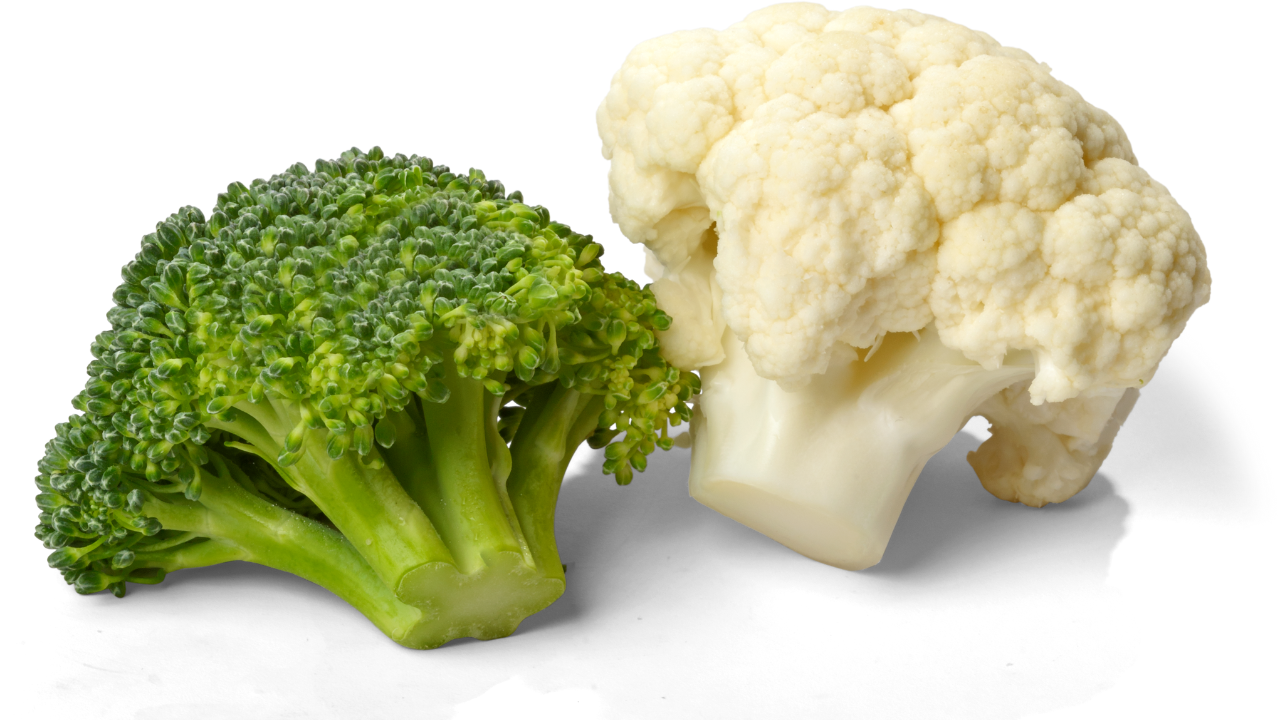Research Highlights:
Main Point 1: Broccoli and other cruciferous vegetables contain cancer-fighting compounds, making them essential in a cancer-preventive diet.
Main Point 2: Glucosinolates in broccoli are transformed into potent metabolites, including sulforaphane and indole-3-carbinol, which have shown effectiveness against various cancers.
Main Point 3: Broccoli's unique compounds impact cancer cells through gene expression, inhibiting cell division, and supporting detoxification pathways in the body.
Scientifically Reviewed by: Dr. Gary Gonzalez, MD, in August 2023.
Introduction:
Cancer remains a formidable threat to public health, and finding ways to protect against it is paramount. One avenue of defense lies in the realm of nutrition, particularly the consumption of cruciferous vegetables like broccoli. These unassuming greens harbor a hidden arsenal of cancer-fighting compounds, making them an essential component of a cancer-preventive diet.
What You Need to Know:
Point 1: The Cruciferous Connection
- Broccoli, along with cauliflower, cabbage, and Brussels sprouts, belongs to the cruciferous vegetable family. These greens are rich in glucosinolates, compounds with potent cancer-fighting potential.
Point 2: Unlocking Nature's Power
- Within the body, glucosinolates undergo a transformation, giving rise to metabolites like sulforaphane and indole-3-carbinol (I3C). These metabolites have demonstrated their effectiveness in combatting various cancers, including colon, breast, prostate, thyroid, and cervical cancers.
Point 3: How Broccoli Battles Cancer
- Broccoli compounds operate through multiple mechanisms to hinder cancer cells. Some influence gene expression, altering crucial proteins and enzymes. Others thwart tumor cell adhesion, inhibit spread and invasion, or interrupt angiogenesis, a critical cancer-fighting mechanism.
- I3C, particularly, has shown the ability to halt the uncontrolled division of cancer cells by modifying the size of specific proteins associated with cellular reproduction.
Point 4: Supporting the Body's Detoxification
- Broccoli compounds also play a role in enhancing the body's detoxification pathways by modulating liver enzymes. This modulation helps in the conversion of harmful compounds into less toxic forms that the body can eliminate safely.
Section 1: The Power of Phytochemicals in Broccoli:
- In this section, we delve into the unique cancer-fighting phytochemicals found in broccoli, such as sulforaphane and I3C, exploring their mechanisms of action.
Section 2: Broccoli's Impact on Gene Expression:
- Learn how broccoli compounds influence gene expression, altering the behavior of genes related to carcinogenesis and cell survival.
Section 3: Detoxification Support:
- Discover how broccoli enhances the body's natural detoxification processes, making it a valuable addition to a cancer-preventive diet.
Summary:
Broccoli is not just a regular vegetable; it's a nutritional powerhouse with the potential to protect against deadly cancers. By incorporating broccoli into your daily diet, you not only benefit from its vitamins, minerals, and fiber but also harness the power of its cancer-fighting phytochemicals. These compounds work together to bolster your body's defenses against the relentless threat of cancer.
Nutritional Content of Broccoli:
- One cup (91 grams) of raw broccoli contains essential nutrients such as vitamins A, C, E, and K, as well as folate, dietary fiber, and various minerals like calcium, magnesium, and potassium.
References:
- Pledgie-Tracy A, Sobolewski MD, Davidson NE. Mol Cancer Ther. 2007 Mar;6(3):1013-21.
- Xiao D, Singh SV. Cancer Res. 2007 Mar 1;67(5):2239-46.
- Pappa G, Strathmann J, Lowinger M, Gerhauser C. Carcinogenesis. 2007 Feb 28. 4. Garcia HH, Brar GA, Nguyen DH, Bjeldanes LF, Firestone GL. J Biol Chem. 2005 Mar 11;280(10):8756-64.
- Rogan EG. In Vivo. 2006 Mar;20(2):221-8.
- Kristal AR, Lampe JW. Nutr Cancer.










